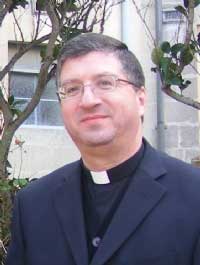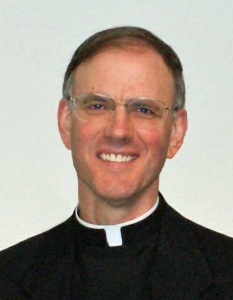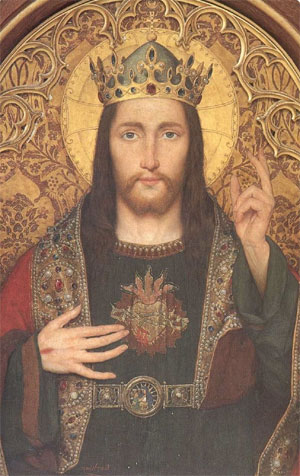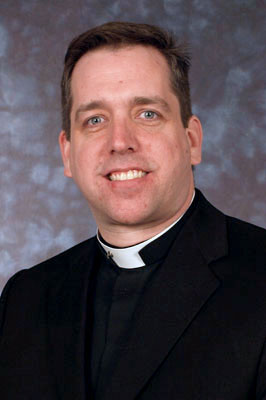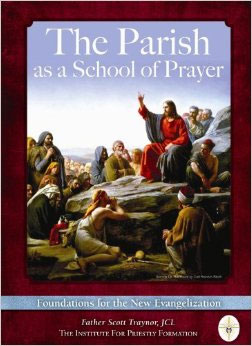Fr. Nicholas Cachia is a truly insighful and gifted spiritual director and theologian. From the beautiful island of Malta, Fr. Cachia spends a portion of his summer as a faculty member with the Institute for Priestly Formation located at Creighton University, in Omaha, Nebraska. In this particular conversation we discuss various topics:
- God’s infinite and unique love for each of us
- The need for authentic discernment in our daily life
- One of the biggest blocks to the God’s great love for us…the fear of losing control and surrendering
- Why the prayer at the end of the day is so important.
- The risk of loving God and others
- The need for being open to the Word of God receiving the Word
- What is “Lectio Continua”
Then he leads us in a meditation on
The Good Shepherd - The great image of Compassion.
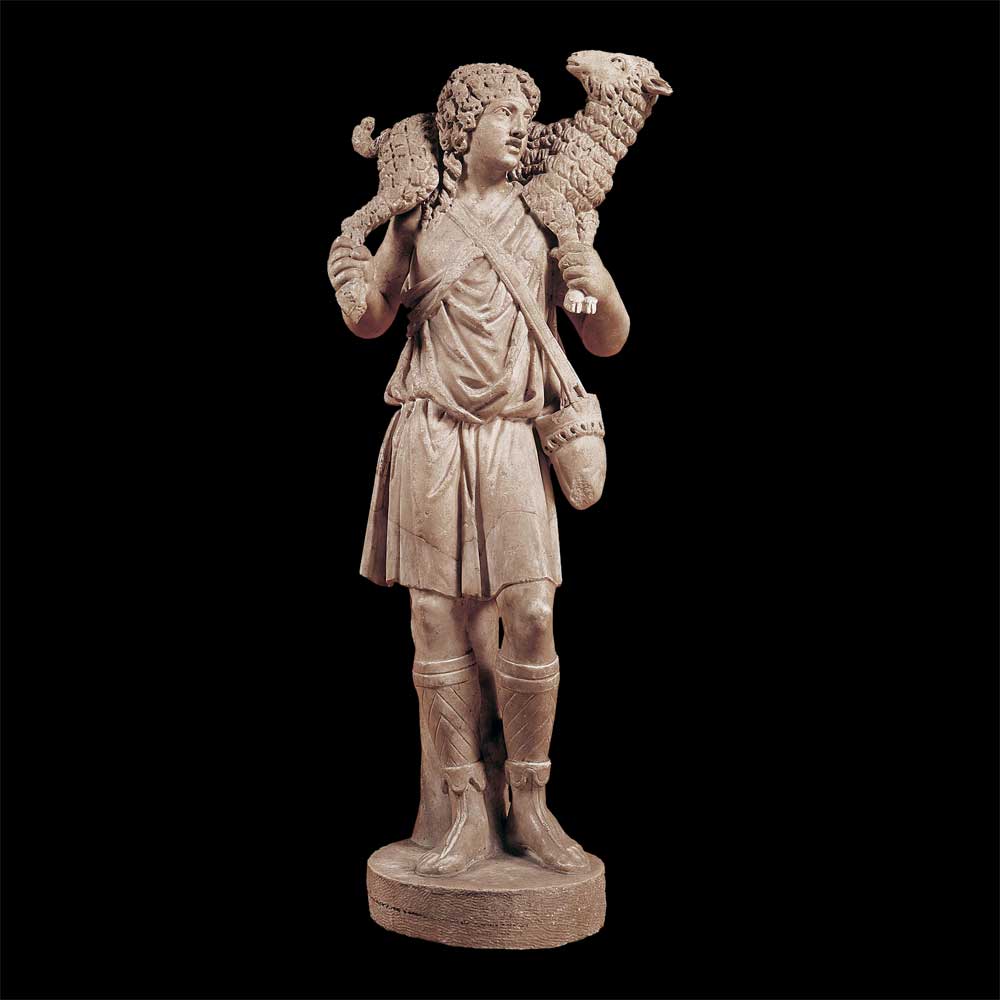
This statue of “The Good Shepherd” was chosen by Pope Benedict XVI in October 2012 to represent the image for the New Evangelization
Rev. Dr Nicholas Cachia is Lecturer in Spiritual Theology at the Faculty of Theology since 1996. His areas of interest include the spirituality of the various stages of life as well as the spirituality of the different states in life, particularly that of the diocesan priesthood. After receiving his undergraduate degree (S.Th.B.) and a Licentiate in Pastoral Theology from the Faculty of Theology at Tal-Virtù (1980-1988), he continued his tertiary studies at the Pontifical Gregorian University in Rome. There he read a Licentiate in Biblical Theology and a Doctorate in Spiritual Theology (1988-1995). His doctoral thesis was published in 1997 in the series Tesi Gregoriana with the title: I am the Good Shepherd. The Good Shepherd lays down his life for the sheep (John 10, 11). The Image of the Good Shepherd as a source for the Spirituality of the Ministerial Priesthood.
He is also Spiritual Director at the Major Seminary in Malta (1994-2000; 2003-present). Since 2003, he is president of the Spiritual Formation Commission within the Secretariat for the Clergy of the Archdiocese of Malta.
Previously he presided over the Commission for the Permanent Formation of the Clergy within the same Secretariat (1994-2000). He was also Deputy Chairman (2000-2001) and then Executive Chairman (2001-2003) of the Media Centre and of RTK Radio. During this time he was also member of the Executive Board of the European Catholic Radio Conference (CERC).
Fr Cachia is a member of the Centro di Studi di Mistica Cristiana, Italy and of the Society for the Study of Christian Spirituality (USA). Since 2004 he teaches at the Summer Session of the Seminarians’ programme of the Institute for Priestly Formation, Creighton University, Omaha, Nebraska USA.
Tags: creighton university, institute for priestly formation, Nicholas Cachia
This entry was posted on Wednesday, November 27th, 2013 at 4:12 pm
You can follow any responses to this entry through the RSS 2.0 feed.
What a joy to talk about the saints with Paul Thigpen. and discuss this INCREDIBLE book! Not just an ascetically gorgeous work, worthy of the 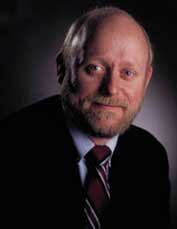 mystery it contains, but “A Year With the Saints: Daily Meditations with the Holy Ones of God” is filled with guided meditations, teachings, and prayers with the “Great Cloud of Witnesses”. Dr. Thigpen, who earned his PhD in Church History, also guides through a wonderful catechesis of the faith through these “love letters” from history.  The perfect gift…period.
mystery it contains, but “A Year With the Saints: Daily Meditations with the Holy Ones of God” is filled with guided meditations, teachings, and prayers with the “Great Cloud of Witnesses”. Dr. Thigpen, who earned his PhD in Church History, also guides through a wonderful catechesis of the faith through these “love letters” from history.  The perfect gift…period.
In this conversation, we discuss many topics, including:
Why the saints? Do we need them? How can they help us grow in faith?
[powerpress]
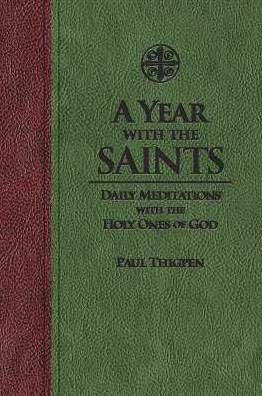 You can find the book here
You can find the book here
“Those who follow the saints”, said Pope Clement I, “will themselves become saints”. Their words and deeds provide a treasury of time-tested wisdom, encouragement, and inspiration for the pursuit of holiness.
Best-selling Catholic author Paul Thigpen opens up that treasury in A Year With the Saints: Daily Meditations With the Holy Ones of God. These 365 reflections draw from the writings and lives of holy men and women across two thousand years. Their spiritual and practical insights for Christian living are as fresh and relevant today as they were when they were first written.
Tags: faith, paul thigpen, saints, work
This entry was posted on Wednesday, November 27th, 2013 at 8:06 am
You can follow any responses to this entry through the RSS 2.0 feed.
Heart of Hope Part 3 – 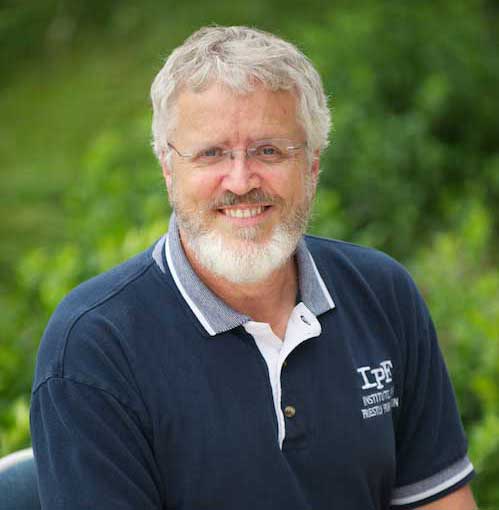 What is Redemptive Suffering…using love and the energy of love to redirect pain as an intercessory prayer for another…how it makes sense and is no longer meaningless
What is Redemptive Suffering…using love and the energy of love to redirect pain as an intercessory prayer for another…how it makes sense and is no longer meaningless
[powerpress]
Deacon James Keating, PhD, the director of Theological Formation for the Institute for Priestly Formation, located at Creighton University, in Omaha, is making available to â€Discerning Hearts†and all who listen, his series of programs entitled “The Heart of Hopeâ€.
This extraordinarily popular series explores the work of suffering in the Christian life and how God can use it to transform the heart of the individual and the world.
Check out Deacon Keating’s “Discerning Hearts†page
The “Heart of Hope†tackles a very tough subject…the gift of suffering in the Christian life. Deacon Keating guides us well.
.
For more information on the “Institute of Priestly Formation†and for other material available by Deacon Keating, just click here
Don’t forget to pickup a copy of “Communion with Christ†, it is one of the best audio sets on prayer…ever!
Tags: Deacon Keating, intercessory prayer, prayer, redemptive suffering, suffering
This entry was posted on Wednesday, November 27th, 2013 at 7:25 am
You can follow any responses to this entry through the RSS 2.0 feed.
In the persons who go from mortal sin to mortal sin, the enemy is commonly used to propose to them apparent pleasures, making them imagine sensual delights and pleasures in order to hold them more and make them grow in their vices and sins. In these persons the good spirit uses the opposite method, pricking them and biting their consciences through the process of reason.
.[powerpress]
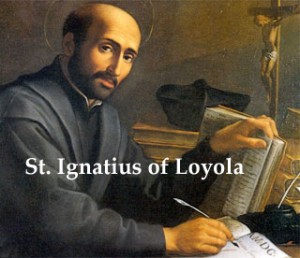 The Discernment of Spirits: Setting the Captives Free – Serves as an introduction to the Spiritual Exercises of St. Ignatius of Loyola
The Discernment of Spirits: Setting the Captives Free – Serves as an introduction to the Spiritual Exercises of St. Ignatius of Loyola
The 14 Rules for Discerning Spirits –
“The Different Movements Which Are Caused In The Soul”
as outlined by St. Ignatius of Loyola
can be found here
Father Timothy M. Gallagher, O.M.V., was ordained in 1979 as a member of the Oblates of the Virgin Mary, a religious community dedicated to retreats and spiritual formation according to the Spiritual Exercises of St. Ignatius. Â Fr. Gallagher is featured on the EWTN series “Living the Discerning Life: Â The Spiritual Teachings of St. Ignatius of Loyola”.Â
For more information on how to obtain copies of Fr. Gallaghers’s various books and audio which are available for purchase, please visit  his  website: www.frtimothygallagher.org
 For the other episodes in this series visit
Fr. Timothy Gallagher’s “Discerning Hearts†page
Tags: discernment of spirits, Father Timothy M. Gallagher, Timothy Gallagher
This entry was posted on Monday, November 25th, 2013 at 10:54 am
You can follow any responses to this entry through the RSS 2.0 feed.
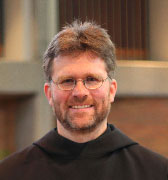 Episode 12 – The Holy Rule of St. Benedict: A Spiritual Path for Today’s World with Fr. Mauritius Wilde O.S.B., PhD.
Episode 12 – The Holy Rule of St. Benedict: A Spiritual Path for Today’s World with Fr. Mauritius Wilde O.S.B., PhD.
In place of relativism…healing consequences
[powerpress]
From the Holy Rule of St. Benedict:
CHAPTER XXVII
How Concerned the Abbot Should Be about the Excommunicated
Let the Abbot show all care and concern towards offending brethren because “they that are in health need not a physician, but they that are sick” (Mt 9:12). Therefore, like a prudent physician he ought to use every opportunity to send consolers, namely, discreet elderly brethren, to console the wavering brother, as it were, in secret, and induce him to make humble satisfaction; and let them cheer him up “lest he be swallowed up with overmuch sorrow” (2 Cor 2:7); but, as the same Apostle saith, “confirm your charity towards him” (2 Cor 2:8); and let prayer be said for him by all.
The Abbot must take the utmost pains, and strive with all prudence and zeal, that none of the flock entrusted to him perish. For the Abbot must know that he has taken upon himself the care of infirm souls, not a despotism over the strong; and let him fear the threat of the Prophet wherein the Lord saith: “What ye saw to be fat, that ye took to yourselves, and what was diseased you threw away” (Ezek 34:3-4). And let him follow the loving example of the Good Shepherd, who, leaving the ninety-nine sheep on the mountains, went to seek the one that had gone astray, on whose weakness He had such pity, that He was pleased to lay it on His sacred shoulders and thus carry it back to the fold (cf Lk 15:5).
Father Mauritius Wilde, OSB, Ph.D., did his philosophical, theological and doctoral studies in Europe. He is the author of several books and directs retreats regularly. He serves as Prior of our monastery in Schuyler.
 For more information about the ministry of the the Missionary Benedictines of Christ the King Priory in Schuyler, Nebraska visit here:
For more information about the ministry of the the Missionary Benedictines of Christ the King Priory in Schuyler, Nebraska visit here:
Tags: good shepherd, prayer, prudence, zeal
This entry was posted on Monday, November 25th, 2013 at 10:53 am
You can follow any responses to this entry through the RSS 2.0 feed.
Dr. Matthew Bunson discusses the life, times and teachings of St. Jerome
[powerpress]
Jerome
-Â Letters
-Â The Perpetual Virginity of Blessed Mary
-Â To Pammachius Against John of Jerusalem
-Â The Dialogue Against the Luciferians
-Â The Life of Malchus, the Captive Monk
-Â The Life of S. Hilarion
-Â The Life of Paulus the First Hermit
-Â Against Jovinianus
-Â Against Vigilantius
-Â Against the Pelagians
-Â Prefaces
-Â De Viris Illustribus (Illustrious Men)
-Â Apology for himself against the Books of Rufinus
Jerome was born into a Christian family in about 347 A.D. in Stridon. He was given a good education and was even sent to Rome to fine-tune his studies. As a young man he was attracted by the worldly life (cf. Ep 22, 7), but his desire for and interest in the Christian religion prevailed.
He received Baptism in about 366 and opted for the ascetic life. He went to Aquileia and joined a group of fervent Christians that had formed around Bishop Valerian and which he described as almost “a choir of blesseds” (Chron. ad ann. 374). He then left for the East and lived as a hermit in the Desert of Chalcis, south of Aleppo (Ep 14, 10), devoting himself assiduously to study. He perfected his knowledge of Greek, began learning Hebrew (cf. Ep 125, 12), and transcribed codices and Patristic writings (cf. Ep 5, 2). Meditation, solitude and contact with the Word of God helped his Christian sensibility to mature. He bitterly regretted the indiscretions of his youth (cf. Ep. 22, 7) and was keenly aware of the contrast between the pagan mentality and the Christian life: a contrast made famous by the dramatic and lively “vision” – of which he has left us an account – in which it seemed to him that he was being scourged before God because he was “Ciceronian rather than Christian” (cf. Ep. 22, 30).In 382 he moved to Rome: here, acquainted with his fame as an ascetic and his ability as a scholar, Pope Damasus engaged him as secretary and counsellor; the Pope encouraged him, for pastoral and cultural reasons, to embark on a new Latin translation of the Biblical texts. Several members of the Roman aristocracy, especially noblewomen such as Paula, Marcella, Asella, Lea and others, desirous of committing themselves to the way of Christian perfection and of deepening their knowledge of the Word of God, chose him as their spiritual guide and teacher in the methodical approach to the sacred texts. These noblewomen also learned Greek and Hebrew.
After the death of Pope Damasus, Jerome left Rome in 385 and went on pilgrimage, first to the Holy Land, a silent witness of Christ’s earthly life, and then to Egypt, the favourite country of numerous monks (cf. Contra Rufinum, 3, 22; Ep. 108, 6-14). In 386 he stopped in Bethlehem, where male and female monasteries were built through the generosity of the noblewoman, Paula, as well as a hospice for pilgrims bound for the Holy Land, “remembering Mary and Joseph who had found no room there” (Ep. 108, 14).
He stayed in Bethlehem until he died, continuing to do a prodigious amount of work: he commented on the Word of God; he defended the faith, vigorously opposing various heresies; he urged the monks on to perfection; he taught classical and Christian culture to young students; he welcomed with a pastor’s heart pilgrims who were visiting the Holy Land. He died in his cell close to the Grotto of the Nativity on 30 September 419-420.
Jerome’s literary studies and vast erudition enabled him to revise and translate many biblical texts: an invaluable undertaking for the Latin Church and for Western culture. On the basis of the original Greek and Hebrew texts, and thanks to the comparison with previous versions, he revised the four Gospels in Latin, then the Psalter and a large part of the Old Testament. Taking into account the original Hebrew and Greek texts of the Septuagint, the classical Greek version of the Old Testament that dates back to pre-Christian times, as well as the earlier Latin versions, Jerome was able, with the assistance later of other collaborators, to produce a better translation: this constitutes the so-called “Vulgate”, the “official” text of the Latin Church which was recognized as such by the Council of Trent and which, after the recent revision, continues to be the “official” Latin text of the Church. It is interesting to point out the criteria which the great biblicist abided by in his work as a translator. He himself reveals them when he says that he respects even the order of the words of the Sacred Scriptures, for in them, he says, “the order of the words is also a mystery” (Ep. 57, 5), that is, a revelation. Furthermore, he reaffirms the need to refer to the original texts: “Should an argument on the New Testament arise between Latins because of interpretations of the manuscripts that fail to agree, let us turn to the original, that is, to the Greek text in which the New Testament was written. “Likewise, with regard to the Old Testament, if there are divergences between the Greek and Latin texts we should have recourse to the original Hebrew text; thus, we shall be able to find in the streams all that flows from the source” (Ep. 106, 2). Jerome also commented on many biblical texts. For him the commentaries had to offer multiple opinions “so that the shrewd reader, after reading the different explanations and hearing many opinions – to be accepted or rejected – may judge which is the most reliable, and, like an expert moneychanger, may reject the false coin” (Contra Rufinum 1, 16).
Jerome refuted with energy and liveliness the heretics who contested the tradition and faith of the Church. He also demonstrated the importance and validity of Christian literature, which had by then become a real culture that deserved to be compared with classical literature: he did so by composing his De Viris Illustribus, a work in which Jerome presents the biographies of more than a hundred Christian authors. Further, he wrote biographies of monks, comparing among other things their spiritual itineraries as well as monastic ideal. In addition, he translated various works by Greek authors. Lastly, in the important Epistulae, a masterpiece of Latin literature, Jerome emerges with the profile of a man of culture, an ascetic and a guide of souls.
What can we learn from St Jerome? It seems to me, this above all; to love the Word of God in Sacred Scripture. St Jerome said: “Ignorance of the Scriptures is ignorance of Christ”. It is therefore important that every Christian live in contact and in personal dialogue with the Word of God given to us in Sacred Scripture. This dialogue with Scripture must always have two dimensions: on the one hand, it must be a truly personal dialogue because God speaks with each one of us through Sacred Scripture and it has a message for each one. We must not read Sacred Scripture as a word of the past but as the Word of God that is also addressed to us, and we must try to understand what it is that the Lord wants to tell us. However, to avoid falling into individualism, we must bear in mind that the Word of God has been given to us precisely in order to build communion and to join forces in the truth on our journey towards God. Thus, although it is always a personal Word, it is also a Word that builds community, that builds the Church. We must therefore read it in communion with the living Church. The privileged place for reading and listening to the Word of God is the liturgy, in which, celebrating the Word and making Christ’s Body present in the Sacrament, we actualize the Word in our lives and make it present among us. We must never forget that the Word of God transcends time. Human opinions come and go. What is very modern today will be very antiquated tomorrow. On the other hand, the Word of God is the Word of eternal life, it bears within it eternity and is valid for ever. By carrying the Word of God within us, we therefore carry within us eternity, eternal life.
I thus conclude with a word St Jerome once addressed to St Paulinus of Nola. In it the great exegete expressed this very reality, that is, in the Word of God we receive eternity, eternal life. St Jerome said: “Seek to learn on earth those truths which will remain ever valid in Heaven” (Ep. 53, 10).
For more visit Vatican.va
Dr. Matthew Bunson, Senior Fellow of the St. Paul Center for Biblical Theology, is one of the United States’ leading authorities on the papacy and the Church.
His books include: The Encyclopedia of Catholic History; The Encyclopedia of Saints; Papal Wisdom; All Shall Be Well; Encyclopedia of the Roman Empire; and The Angelic Doctor: The Life and World of St. Thomas Aquinas; The Pope Encyclopedia; We Have a Pope! Benedict XVI, the first Catholic biography of the Holy Father in the English language; the Encyclopedia of U.S. Catholic History; Pope Francis. His also the editor of OSV’s “The Catholic Answer” magazine.
Tags: catholic, catholic podcast, catholic prayer, cathollc spirituality, Church, matthew bunson, sacred scripture, St Jerome
This entry was posted on Monday, November 25th, 2013 at 9:53 am
You can follow any responses to this entry through the RSS 2.0 feed.
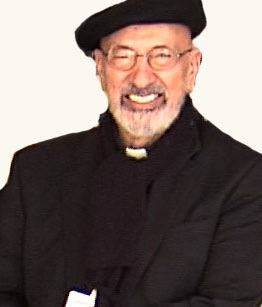 Show 54 ” Building a Kingdom of Love” – The Reign of Christ the King
Show 54 ” Building a Kingdom of Love” – The Reign of Christ the King
[powerpress]
Msgr. Esseff reflects on the teaching of the Sacred Scriptures on the feast of Christ the King…the victory of Jesus and the defeat of Satan:
Gospel    Lk 23:35-43
The rulers sneered at Jesus and said,
“He saved others, let him save himself
if he is the chosen one, the Christ of God.”
Even the soldiers jeered at him.
As they approached to offer him wine they called out,
“If you are King of the Jews, save yourself.”
Above him there was an inscription that read,
“This is the King of the Jews.”Now one of the criminals hanging there reviled Jesus, saying,
“Are you not the Christ?
Save yourself and us.”
The other, however, rebuking him, said in reply,
“Have you no fear of God,
for you are subject to the same condemnation?
And indeed, we have been condemned justly,
for the sentence we received corresponds to our crimes,
but this man has done nothing criminal.”
Then he said,
“Jesus, remember me when you come into your kingdom.”
He replied to him,
“Amen, I say to you,
today you will be with me in Paradise.”
Msgr. John A. Esseff is a Roman Catholic priest in the Diocese of Scranton. He was ordained on May 30th 1953, by the late Bishop William J. Hafey, D.D. at St. Peter’s Cathedral in Scranton, PA. Msgr. Esseff served a retreat director and confessor to Blessed Mother Teresa. He continues to offer direction and retreats for the sisters of the missionaries of charity around the world. Msgr. Esseff encountered St. Padre Pio, who would become a spiritual father to him. He has lived in areas around the world, serving in the Pontifical missions, a Catholic organization established by Bl. Pope John Paul II to bring the Good News to the world especially to the poor. Msgr. Esseff assisted the founders of the Institute for Priestly Formation and continues to serve as a spiritual director for the Institute. He continues to serve as a retreat leader and director to bishops, priests and sisters and seminarians and other religious leaders around the world.
To obtain a copy of Msgr. Esseff’s book by visiting here
Be sure to visit Msgr. Esseff’s website “Building a Kingdom of Love”
Tags: blessed mother teresa, Good News, John Esseff, retreat
This entry was posted on Sunday, November 24th, 2013 at 6:46 am
You can follow any responses to this entry through the RSS 2.0 feed.
SP#3 The School of Prayer: Foundations for the New Evangelization
Fr. Scott Traynor talks about the darkness that can be found in our lives. How can we experience the overwhelming love and mercy of God, even in our suffering? How can we live out the teaching of St. Paul:
Philippians 4:4 Rejoice in the Lord always. I shall say it again: rejoice!
In Father Scott Traynor’s book, Blessed John Paul II’s memorable call to make of the parish a school of prayer takes on flesh and becomes concretely attainable. Those you read these faith-filled pages will find renewed desire to create such parishes and a clear road-map toward this goal.
–Father Timothy Gallagher, OMV
Father Scott Traynor received his STB from the Pontifical Gregorian University and his JCL from Catholic University of America. He has been an instructor and spiritual director for many of the programs at the Institute for Priestly Formation.
Father Traynor is a retreat master and spiritual director who has travelled the country as a speaker at various conferences, diocesan gatherings and national conferences.. He is especially sought after to present on the topics of prayer, discernment and priestly identity and mission.
He serves the Rector of the St. John Vianney Theological Seminary in Denver Colorado.
Tags: darkness, Father Timothy Gallagher, holy trinity, mercy, OMV, prayer, Scott Traynor, spiritual director, STB
This entry was posted on Sunday, November 24th, 2013 at 12:03 am
You can follow any responses to this entry through the RSS 2.0 feed.
Heart of Hope Part 2 –  The agony of emotional suffering and opportunities for deeper union with Jesus; the reason for pastoral ministry
The agony of emotional suffering and opportunities for deeper union with Jesus; the reason for pastoral ministry
[powerpress]
Deacon James Keating, PhD, the director of Theological Formation for the Institute for Priestly Formation, located at Creighton University, in Omaha, is making available to â€Discerning Hearts†and all who listen, his series of programs entitled “The Heart of Hopeâ€.
This extraordinarily popular series explores the work of suffering in the Christian life and how God can use it to transform the heart of the individual and the world. 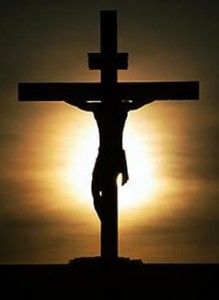
The “Heart of Hope†tackles a very tough subject…the gift of suffering in the Christian life. Deacon Keating guides us well.
.
For more information on the “Institute of Priestly Formation†and for other material available by Deacon Keating, just click here
Don’t forget to pickup a copy of “Communion with Christ†, it is one of the best audio sets on prayer…ever!
Check out Deacon Keating’s “Discerning Heart†page
Tags: creighton university, Deacon Keating, Jesus, suffering
This entry was posted on Tuesday, November 19th, 2013 at 5:11 pm
You can follow any responses to this entry through the RSS 2.0 feed.
 Episode 11 – The Holy Rule of St. Benedict: A Spiritual Path for Today’s World with Fr. Mauritius Wilde O.S.B., PhD.
Episode 11 – The Holy Rule of St. Benedict: A Spiritual Path for Today’s World with Fr. Mauritius Wilde O.S.B., PhD.
Instead of circling around one’s self, hospitality
[powerpress]
From the Holy Rule of St. Benedict:
CHAPTER LIII
Of the Reception of GuestsLet all guests who arrive be received as Christ, because He will say: “I was a stranger and you took Me in” (Mt 25:35). And let due honor be shown to all, especially to those “of the household of the faith” (Gal 6:10) and to wayfarers.
When, therefore, a guest is announced, let him be met by the Superior and the brethren with every mark of charity. And let them first pray together, and then let them associate with one another in peace. This kiss of peace should not be given before a prayer hath first been said, on account of satanic deception. In the greeting let all humility be shown to the guests, whether coming or going; with the head bowed down or the whole body prostrate on the ground, let Christ be adored in them as He is also received.
When the guests have been received, let them be accompanied to prayer, and after that let the Superior, or whom he shall bid, sit down with them. Let the divine law be read to the guest that he may be edified, after which let every kindness be shown him. Let the fast be broken by the Superior in deference to the guest, unless, perchance, it be a day of solemn fast, which cannot be broken. Let the brethren, however, keep the customary fast. Let the Abbot pour the water on the guest’s hands, and let both the Abbot and the whole brotherhood wash the feet of all the guests. When they have been washed, let them say this verse: “We have received Thy mercy, O God, in the midst of Thy temple” (Ps 47[48]:10). Let the greatest care be taken, especially in the reception of the poor and travelers, because Christ is received more specially in them; whereas regard for the wealthy itself procureth them respect.
Let the kitchen of the Abbot and the guests be apart, that the brethren may not be disturbed by the guests who arrive at uncertain times and who are never wanting in the monastery. Let two brothers who are able to fulfil this office well go into the kitchen for a year. Let help be given them as they need it, that they may serve without murmuring; and when they have not enough to do, let them go out again for work where it is commanded them. Let this course be followed, not only in this office, but in all the offices of the monastery — that whenever the brethren need help, it be given them, and that when they have nothing to do, they again obey orders. Moreover, let also a God-fearing brother have assigned to him the apartment of the guests, where there should be sufficient number of beds made up; and let the house of God be wisely managed by the wise.
On no account let anyone who is not ordered to do so, associate or speak with guests; but if he meet or see them, having saluted them humbly, as we have said, and asked a blessing, let him pass on saying that he is not allowed to speak with a guest.
Father Mauritius Wilde, OSB, Ph.D., did his philosophical, theological and doctoral studies in Europe. He is the author of several books and directs retreats regularly. He serves as Prior of our monastery in Schuyler.
 For more information about the ministry of the the Missionary Benedictines of Christ the King Priory in Schuyler, Nebraska visit here:
For more information about the ministry of the the Missionary Benedictines of Christ the King Priory in Schuyler, Nebraska visit here:
Tags: humility, law, prayer, work
This entry was posted on Monday, November 18th, 2013 at 3:32 pm
You can follow any responses to this entry through the RSS 2.0 feed.
Dr. Matthew Bunson discusses the life, times and teachings of St. Augustine of Hippo (part 2)
[powerpress]
Augustine of Hippo [
-Â Confessions
-Â Letters
-Â City of God
-Â Christian Doctrine
-Â On the Holy Trinity
-Â The Enchiridion
-Â On the Catechising of the Uninstructed
-Â On Faith and the Creed
-Â Concerning Faith of Things Not Seen
-Â On the Profit of Believing
-Â On the Creed: A Sermon to Catechumens
-Â On Continence
-Â On the Good of Marriage
-Â On Holy Virginity
-Â On the Good of Widowhood
-Â On Lying
-Â To Consentius: Against Lying
-Â On the Work of Monks
-Â On Patience
-Â On Care to be Had For the Dead
-Â On the Morals of the Catholic Church
-Â On the Morals of the Manichaeans
-Â On Two Souls, Against the Manichaeans
-Â Acts or Disputation Against Fortunatus the Manichaean
-Â Against the Epistle of Manichaeus Called Fundamental
-Â Reply to Faustus the Manichaean
-Â Concerning the Nature of Good, Against the Manichaeans
-Â On Baptism, Against the Donatists
-Â Answer to Letters of Petilian, Bishop of Cirta
-Â Merits and Remission of Sin, and Infant Baptism
-Â On the Spirit and the Letter
-Â On Nature and Grace
-Â On Man’s Perfection in Righteousness
-Â On the Proceedings of Pelagius
-Â On the Grace of Christ, and on Original Sin
-Â On Marriage and Concupiscence
-Â On the Soul and its Origin
-Â Against Two Letters of the Pelagians
-Â On Grace and Free Will
-Â On Rebuke and Grace
-Â The Predestination of the Saints/Gift of Perseverance
-Â Our Lord’s Sermon on the Mount
-Â The Harmony of the Gospels
-Â Sermons on Selected Lessons of the New Testament
-Â Tractates on the Gospel of John
-Â Homilies on the First Epistle of John
-Â Soliloquies
-Â The Enarrations, or Expositions, on the Psalms
After his Baptism, Augustine decided to return to Africa with his friends, with the idea of living a community life of the monastic kind at the service of God. However, while awaiting their departure in Ostia, his mother fell ill unexpectedly and died shortly afterwards, breaking her son’s heart. Having returned to his
homeland at last, the convert settled in Hippo for the very purpose of founding a monastery. In this city on the African coast he was ordained a priest in 391, despite his reticence, and with a few companions began the monastic life which had long been in his mind, dividing his time between prayer, study and preaching. All he wanted was to be at the service of the truth. He did not feel he had a vocation to pastoral life but realized later that God was calling him to be a pastor among others and thus to offer people the gift of the truth. He was ordained a Bishop in Hippo four years later, in 395. Augustine continued to deepen his study of Scripture and of the texts of the Christian tradition and was an exemplary Bishop in his tireless pastoral commitment: he preached several times a week to his faithful, supported the poor and orphans, supervised the formation of the clergy and the organization of mens’ and womens’ monasteries. In short, the former rhetorician asserted himself as one of the most important exponents of Christianity of that time. He was very active in the government of his Diocese – with remarkable, even civil, implications – in the more than 35 years of his Episcopate, and the Bishop of Hippo actually exercised a vast influence in his guidance of the Catholic Church in Roman Africa and, more generally, in the Christianity of his time, coping with religious tendencies and tenacious, disruptive heresies such as Manichaeism, Donatism and Pelagianism, which endangered the Christian faith in the one God, rich in mercy.
And Augustine entrusted himself to God every day until the very end of his life: smitten by fever, while for almost three months his Hippo was being besieged by vandal invaders, the Bishop – his friend Possidius recounts in his Vita Augustini - asked that the penitential psalms be transcribed in large characters, “and that the sheets be attached to the wall, so that while he was bedridden during his illness he could see and read them and he shed constant hot tears” (31, 2). This is how Augustine spent the last days of his life. He died on 28 August 430, when he was not yet 76. We will devote our next encounters to his work, his message and his inner experience.
For more visit Vatican.va
Dr. Matthew Bunson, Senior Fellow of the St. Paul Center for Biblical Theology, is one of the United States’ leading authorities on the papacy and the Church.
His books include: The Encyclopedia of Catholic History; The Encyclopedia of Saints; Papal Wisdom; All Shall Be Well; Encyclopedia of the Roman Empire; and The Angelic Doctor: The Life and World of St. Thomas Aquinas; The Pope Encyclopedia; We Have a Pope! Benedict XVI, the first Catholic biography of the Holy Father in the English language; the Encyclopedia of U.S. Catholic History; Pope Francis. His also the editor of OSV’s “The Catholic Answer” magazine.
Tags: beauty, Church, matthew bunson, mother, old testament, truth
This entry was posted on Monday, November 18th, 2013 at 3:17 pm
You can follow any responses to this entry through the RSS 2.0 feed.
Episode 2 The Discernment of  Spirits: Setting the Captives Free – The life of St. Ignatius of Loyola and the foundational elements of the Spiritual Exercises
[powerpress]
 The Discernment of Spirits: Setting the Captives Free – Serves as an introduction to the Spiritual Exercises of St. Ignatius of Loyola
The Discernment of Spirits: Setting the Captives Free – Serves as an introduction to the Spiritual Exercises of St. Ignatius of Loyola
The 14 Rules for Discerning Spirits –
“The Different Movements Which Are Caused In The Soul”
as outlined by St. Ignatius of Loyola
can be found here
Father Timothy M. Gallagher, O.M.V., was ordained in 1979 as a member of the Oblates of the Virgin Mary, a religious community dedicated to retreats and spiritual formation according to the Spiritual Exercises of St. Ignatius. Â Fr. Gallagher is featured on the EWTN series “Living the Discerning Life: Â The Spiritual Teachings of St. Ignatius of Loyola”.Â
For more information on how to obtain copies of Fr. Gallaghers’s various books and audio which are available for purchase, please visit  his  website: www.frtimothygallagher.org
 For the other episodes in this series visit
Fr. Timothy Gallagher’s “Discerning Hearts†page
Tags: discernment of spirits, st. ignatius of loyola, Timothy Gallagher
This entry was posted on Monday, November 18th, 2013 at 7:53 am
You can follow any responses to this entry through the RSS 2.0 feed.
 Show 53 ” Building a Kingdom of Love” – The World Will End…What Will Your Response Be?
Show 53 ” Building a Kingdom of Love” – The World Will End…What Will Your Response Be?
[powerpress]
Msgr. Esseff reflects on the teaching of the Sacred Scriptures on “the end times”:
Gospel   Lk 21:5-19
While some people were speaking about
how the temple was adorned with costly stones and votive offerings,
Jesus said, “All that you see here–
the days will come when there will not be left
a stone upon another stone that will not be thrown down.”Then they asked him,
“Teacher, when will this happen?
And what sign will there be when all these things are about to happen?”
He answered,
“See that you not be deceived,
for many will come in my name, saying,
‘I am he,’ and ‘The time has come.’
Do not follow them!
When you hear of wars and insurrections,
do not be terrified; for such things must happen first,
but it will not immediately be the end.”
Then he said to them,
“Nation will rise against nation, and kingdom against kingdom.
There will be powerful earthquakes, famines, and plagues
from place to place;
and awesome sights and mighty signs will come from the sky.“Before all this happens, however,
they will seize and persecute you,
they will hand you over to the synagogues and to prisons,
and they will have you led before kings and governors
because of my name.
It will lead to your giving testimony.
Remember, you are not to prepare your defense beforehand,
for I myself shall give you a wisdom in speaking
that all your adversaries will be powerless to resist or refute.
You will even be handed over by parents, brothers, relatives, and friends,
and they will put some of you to death.
You will be hated by all because of my name,
but not a hair on your head will be destroyed.
By your perseverance you will secure your lives.”
Msgr. John A. Esseff is a Roman Catholic priest in the Diocese of Scranton. He was ordained on May 30th 1953, by the late Bishop William J. Hafey, D.D. at St. Peter’s Cathedral in Scranton, PA. Msgr. Esseff served a retreat director and confessor to Blessed Mother Teresa. He continues to offer direction and retreats for the sisters of the missionaries of charity around the world. Msgr. Esseff encountered St. Padre Pio, who would become a spiritual father to him. He has lived in areas around the world, serving in the Pontifical missions, a Catholic organization established by Bl. Pope John Paul II to bring the Good News to the world especially to the poor. Msgr. Esseff assisted the founders of the Institute for Priestly Formation and continues to serve as a spiritual director for the Institute. He continues to serve as a retreat leader and director to bishops, priests and sisters and seminarians and other religious leaders around the world.
To obtain a copy of Msgr. Esseff’s book byvisiting here
Be sure to visit Msgr. Esseff’s website “Building a Kingdom of Love”
Tags: blessed mother teresa, Good News, John Esseff, retreat
This entry was posted on Sunday, November 17th, 2013 at 6:55 pm
You can follow any responses to this entry through the RSS 2.0 feed.
Heart of Hope Part 1 – The role of the Cross in the Christian life, suffering, prayer and and how it conquers evil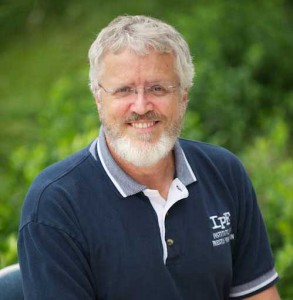
[powerpress]
Deacon James Keating, PhD, the director of Theological Formation for the Institute for Priestly Formation, located at Creighton University, in Omaha, is making available to â€Discerning Hearts†and all who listen, his series of programs entitled “The Heart of Hopeâ€.
This extraordinarily popular series explores the work of suffering in the Christian life and how God can use it to transform the heart of the individual and the world. 
The “Heart of Hope† tackles a very tough subject…the gift of suffering in the Christian life. Deacon Keating guides us well.
.
For more information on the “Institute of Priestly Formation†and for other material available by Deacon Keating, just click here
Don’t forget to pickup a copy of “Communion with Christ†, it is one of the best audio sets on prayer…ever!
Check out Deacon Keating’s “Discerning Heart†page
Tags: creighton university, Deacon James Keating, Deacon Keating, institute for priestly formation, suffering
This entry was posted on Tuesday, November 12th, 2013 at 12:45 pm
You can follow any responses to this entry through the RSS 2.0 feed.
Episode 5- Seeking Truth with Sharon Doran – The Birth of Jesus (PART 1) 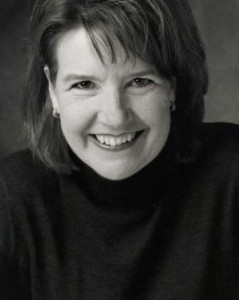 [powerpress] Sharon Doran serves as the teaching director of “Seeking Truth.†An experienced Bible Study teacher, Sharon has a passion for scripture that will motivate and challenge you to immerse yourself in God’s Word and apply His message to your every day life.
[powerpress] Sharon Doran serves as the teaching director of “Seeking Truth.†An experienced Bible Study teacher, Sharon has a passion for scripture that will motivate and challenge you to immerse yourself in God’s Word and apply His message to your every day life.
Episode 5 –
T![]() he story of Israel is the story of Jesus. On this 2 part lecture, Sharon weaves a beautiful tapestry of the history of the nation of Israel.
he story of Israel is the story of Jesus. On this 2 part lecture, Sharon weaves a beautiful tapestry of the history of the nation of Israel.
The fabric of this history is revealed in the genealogy of Jesus, a family tree ripe with great leaders and scandalous sinners.
This story is a stream that flows through the times of the patriarchs, the wandering in the desert, the era of the Judges, the reign of David and Solomon, the division of the Hebrew kingdom and the exile into Babylon.
This story is punctuated with the voices of the prophets who announce with astonishing accuracy the coming of Messiah.
This story is culminated in the most unlikely of places: the virginal womb of a young Jewish woman.
 “Seeking Truth†is an in depth Catholic Bible Study, commissioned by the Archdiocese of Omaha in response to John Paul II’s call to the New Evangelization as well as Pope Benedict XVI’s exhortation for all Catholics to study scripture. To learn more go to:www.seekingtruth.net
“Seeking Truth†is an in depth Catholic Bible Study, commissioned by the Archdiocese of Omaha in response to John Paul II’s call to the New Evangelization as well as Pope Benedict XVI’s exhortation for all Catholics to study scripture. To learn more go to:www.seekingtruth.net
Tags: family, Israel, Jesus, scripture, Sharon Doran
This entry was posted on Tuesday, November 12th, 2013 at 6:15 am
You can follow any responses to this entry through the RSS 2.0 feed.

